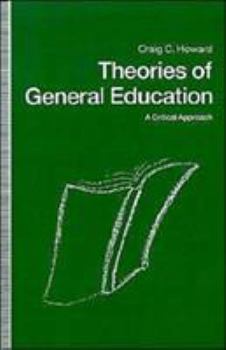Theories of General Education: A Critical Approach
The quality of undergraduate education in the United States has been a recent subject of debate for public officials as well as curriculum planners. Much of that debate has focused on general education, but little of it has articulated the philosophical presuppositions of general education programs. The problem of this work is to articulate the philosophical presuppositions of the major approaches to general education in the U.S. and to suggest a ground from which to assess them critically. The procedures used are both historical-hermeneutic and critical. In articulating the four major approaches to general education (the Idealist, the Progressive, the Essentialist, and the Pragmatist), the procedures are historical and hermeneutic. In developing a critical theory of general education based on the critical theory of Jurgen Habermas, the procedures are both historical-hermeneutic and critical. The work provides a theoretical ground from which further empirical research may be conducted, as well as making the critical theory of Jurgen Habermas accessible to curricular reformers. The study further suggests ways to evaluate general education programs and suggests a new focus for curricular reform: communicative competence based on the traditional ideals of free speech and the "good life".
Format:Hardcover
Language:English
ISBN:0312047436
ISBN13:9780312047436
Release Date:August 1992
Publisher:Palgrave MacMillan
Length:123 Pages
Weight:0.71 lbs.
Dimensions:0.6" x 5.7" x 8.9"
Customer Reviews
0 rating





